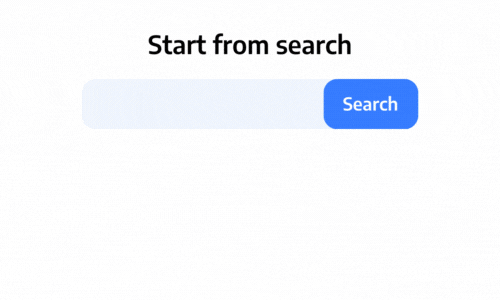Filter events
Lendtech Credit Risk 2025
AI
Analytics
DAMA
Data Modeling
Data Science
Regulations
26 Nov 2025
Warszawa,
Poland
„Lendtech Credit Risk 2025” to intensywne wydarzenie dla branży pożyczkowej i fintech. Porusza kluczowe tematy: wpływ CCD2 na ryzyko, rozwój modeli AI, automatyzację procesów, wartość danych w credit risk, walkę z fraudem i tożsamościami syntetycznymi oraz nadchodzące zmiany regulacyjne. Udział biorą eksperci m.in. z Algolytics, Trend Capital, ERIF, PayPo, Identt, Solid Cyber i czołowych kancelarii.
Med Smart Science Forum
AI
Analytics
Big Data
DAMA
Data Governance
Data Integration
Data Management
Data Modeling
Power BI
6 - 7 Nov, 2025
Warszawa,
Poland
Med Smart Science Forum - to nowa konferencja, która już 📆 6-7 listopada w Warszawie oraz online połączy medycynę, naukę i technologię.
Wydarzenie wyróżnia się praktycznym podejściem – zamiast teorii zobaczysz wdrożenia i realne zastosowania danych w ochronie zdrowia.
🖥️👨⚕️🌐 A będzie można posłuchać m.in. o:
👉 danych jako fundamencie innowacyjnych terapii,
👉wykorzystaniu AI w badaniach klinicznych,
👉 praktycznych case studies z polskich szpitali i instytutów.
👉etyce i cyberbezpieczeństwie w analizie danych.
Artificial intelligence does not exist without data – it is data that drives it and gives it direction. Integral Data Talks is a conference that brings together data scientists, AI specialists, and business leaders. We focus on practical applications – we show how data changes companies, accelerates decisions, and opens the way to innovation.
The conference program includes: the latest trends in data management, analytics, Data Governance, data warehouse modernization and more. You will hear specific cases, real experiences and answers to key questions about the future of AI in business.
We meet for the eighth time – this time in Warsaw!
11th Data Management ThinkLab
AI
Analytics
Big Data
CDO
DAMA
Data Architecture
Data Governance
Data Integration
Data Management
Data Modeling
Data Quality
Data Science
Data Storage
Regulations
Security
9 - 11 Apr, 2025
Prague,
Czech Republic
This is an event that puts in the spotlight the value of Data through Interactive Q&A, roundtables, panel discussions and networking time.
Over these 3 days, we will cement Data Management's importance in achieving most of today's priorities for building a modern, future-proof organization, whether it's customer experience, sustainability, compliance or future tech adoption.
Warszawskie Dni Informatyki 2025 to największe wydarzenie dla społeczności IT w Polsce, które każdego roku przyciąga ponad 10 000 uczestników. 16. edycja odbędzie się 4 kwietnia online oraz 5 kwietnia stacjonarnie w budynku MiNI Politechniki Warszawskiej.
Podczas konferencji uczestnicy będą mogli wysłuchać ponad 300 prelekcji w ponad 25 ścieżkach tematycznych, obejmujących najnowsze trendy technologiczne, programowanie, AI, cloud computing, gamedev i wiele innych.
W ramach wydarzenia odbędzie się także Women in IT Days & Expo, inicjatywa wspierająca kobiety w branży technologicznej, oferująca inspirujące wystąpienia oraz mentoring. Całość dopełnią konkursy, networking i dodatkowe atrakcje, dzięki którym Warszawskie Dni Informatyki to nie tylko dawka wiedzy, ale też doskonała okazja do rozwoju kariery i nawiązania wartościowych kontaktów.
7th Data Governance for Financial Institutions in Frankfurt am Main
AI
Analytics
CDO
DAMA
Data Governance
Data Management
Data Modeling
Data Quality
05 Dec 2024
Frankfurt,
Germany
Na tym wydarzeniu będą omawiane i prezentowane zagadnienia dotyczące wdrażania Data Governance w instytucjach finansowych, w tym bankach, takie jak:
- AI,
- wymagane regulacje like BCBS239,
- Data Lineage, Data Catalog, Data Quality,
- Metadata
itp.
Standardowa cena wynosi 2.499 EUR za uczestnika, ale myślę, że dla chetnych członków DAMA Poland możemy wynegocjować lepszą stawkę :)
Szczegółowa agenda znajduje się na stronie wydarzenia.
CDO BANKING, FINANCIAL SERVICES AND INSURANCE EXCHANGE in London
AI
Analytics
CDO
DAMA
Data Management
Data Modeling
Data Science
11 - 12 Nov, 2024
London,
United Kingdom
Na tym wydarzeniu będą omawiane i prezentowane zagadnienia dotyczące wdrażania Data Governance w instytucjach finansowych, w tym bankach, takie jak AI, wymagane regulacje, Data Lineage, Data Catalog, Data Quality, Metadata itp. Standardowa cena wynosi ~2.000 EUR za uczestnika, ale myślę, że dla członków DAMA Poland możemy wynegocjować lepszą stawkę :) Szczegółowa agenda znajduje się na stronie wydarzenia.
10th Data Management ThinkLab
AI
Analytics
CDO
DAMA
Data Architecture
Data Governance
Data Management
Data Modeling
Data Quality
Data Science
Data Storage
Data Warehousing
23 - 25 Oct, 2024
Prague,
Czech Republic
Dla chętnych możemy zaaoferować zniżkę w wysokości 45% !!! Jeżeli ktoś jest zainteresowany to zapraszam do kontaktu :)
Data Lineage as part of Data Governance Universe
CDO
DAMA
Data Management
Data Modeling
18 Sep 2024
Ukraine
Na spotkaniu (jezyk angielski) zamierzamy omówić wraz z kolegami z #DAMAKiev możliwości wykorzystania rozwiązania typu Data Lineage z punktu widzenia biznesu oraz wymagań regulatora w zakresie np. DORA, BCBS239, GDPR, ESG etc
Data Modeling Zone US (DMZ) 2024
Data Modeling
27 Feb - 1 Mar, 2024
Phoenix, AZ,
United States
Applications deliver value only when the underlying applications meets user needs. Yet organizations spend millions of dollars and thousands of hours every year developing solutions that fail to deliver. There is so much waste due to poorly capturing and articulating business requirements. Data models prevent this waste by capturing business terminology and needs in a precise form and at varying levels of detail, ensuring fluid communication across business and IT. Data modeling is therefore an essential skill for anyone involved in building an application: from data scientists and business analysts to software developers and database administrators. Data modeling is all about understanding the data used within our operational and analytics processes, documenting this knowledge in a precise form called the “data model”, and then validating this knowledge through communication with both business and IT stakeholders.



